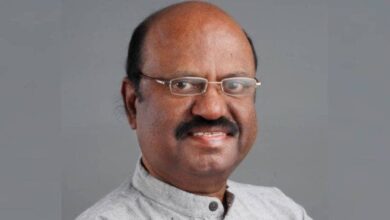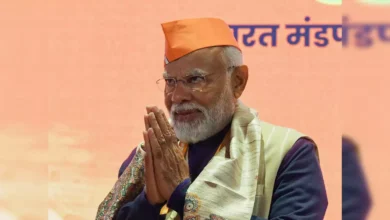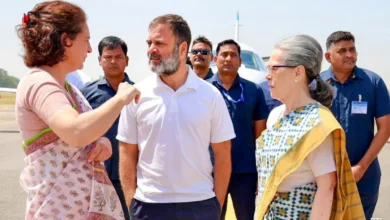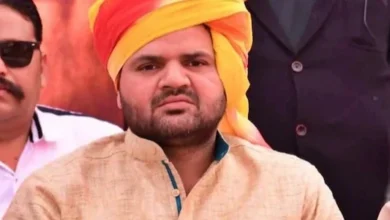2024: The biggest election year in history;Over 50 countries to go to the polls
The fate of democracy has become a critical campaign issue in many nations.
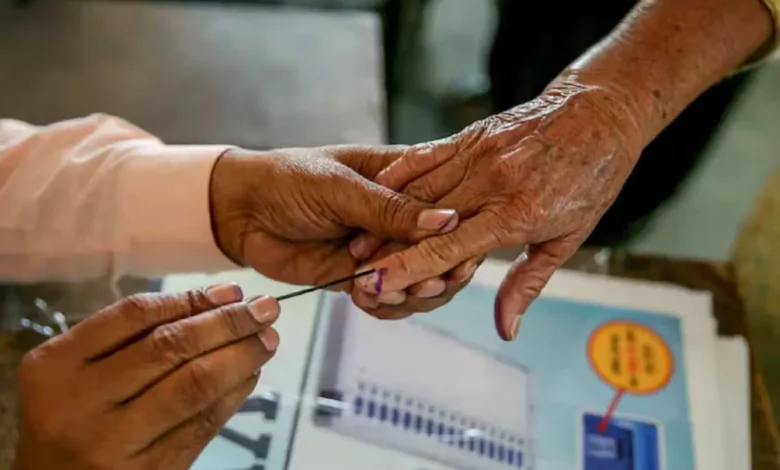
As the world turns its attention to the year 2024, more than 50 nations, collectively home to half the global population, are preparing for significant national elections. These elections, taking place from Russia and Taiwan to the United Kingdom, India, El Salvador, and South Africa, are poised to shape the trajectory of human rights, economies, international relations, and global peace in an increasingly volatile world.
Crucial Elections and Their Worldwide Impact
The coming year tests the resilience of even the most established democracies, with concerns over the fairness of elections, opposition constraints, and the potential for manipulation and disinformation taking center stage. The fate of democracy has become a critical campaign issue in many nations, reflecting a growing unease among diverse electorates.
In the United States, a potential rematch between President Joe Biden and former President Donald Trump looms large on the election calendar. The outcome carries significant global implications, serving as a barometer for the widespread dissatisfaction, impatience, and uneasiness among diverse electorates. The choices made in this electoral battleground will not only shape USA but reverberate globally.
Taiwan, a flashpoint in international relations, faces elections for president and the 113-member legislature under intense pressure from China. The island’s future is portrayed as a choice between war and peace by Beijing, further complicating an already sensitive geopolitical situation. Beyond the geopolitical tensions, issues such as defence, cross-strait tensions, and domestic concerns like housing and healthcare are expected to shape Taiwan’s scenario.
Challenges to Established Democracies
In Bangladesh, Prime Minister Sheikh Hasina secures her fourth successive term amid opposition boycotts and pre-election violence. The low turnout and stifling of dissent raise concerns about political stability. Meanwhile, in India, anticipation grows for Prime Minister Narendra Modi’s re-election. Many view Modi as a strong leader, applauding his efforts to boost the economy, enhance infrastructure, and dedicate himself to national progress.
El Salvador’s President Nayib Bukele, known for his aggressive crackdown on street gangs, seeks to retain power despite criticism from foreign governments regarding civil rights suspensions. Bukele’s dominance, like other leaders globally, reflects a growing trend of leaders consolidating power, sometimes at the expense of democratic norms.
In Mexico, the upcoming presidential election on June 2 could mark a historic moment as the country is poised to elect its first female president. The contest between former Mexico City Mayor Claudia Sheinbaum and former opposition senator Xochitl Galvez takes place against a backdrop of drug-related violence and a powerful military.
World Views with Africa, Europe, and More
The African continent confronts unique challenges, with eight West African countries experiencing military coups since 2020. Senegal’s Feb 25 election, following President Macky Sall’s departure, becomes a key indicator of political resilience amid accusations of opposition constraints.
Europe grapples with the rise of populism, as seen in Slovakia’s of pro-Russia populist Prime Minister Robert Fico and Poland’s shift toward a centrist coalition. The upcoming European Parliament races in June will be crucial in determining the balance between traditional parties and populist contenders skeptical of military support for Ukraine.
The United Kingdom, having experienced the populist expression of the 2016 Brexit referendum, faces a general election, pitting the governing Conservatives against the center-left Labour Party.
South Africa, with its struggling economy and high unemployment, prepares for a legislative election between May and August. The African National Congress, which has dominated since the end of apartheid, faces challenges as it seeks to maintain voter support.
South Sudan plans its long-delayed first vote in December, a significant milestone for the world’s youngest country. However, concerns about voter registration, security plans, and dispute resolution raise doubts about the vote’ credibility.
Russia and Belarus, led by President Vladimir Putin and President Alexander Lukashenko, respectively, showcase elections with predetermined outcomes, raising questions about the integrity of these processes.
Democracy’s Modern Trials
As countries enter this crucial year of elections, unique challenges are changing the way democracies work worldwide. From climate change and global tensions to economic issues at home and changes in technology, the decisions people make when voting will have effects beyond their borders
In Africa, the forces of climate change, disrupted grain supplies from the Ukraine war, and increasing attention from China and Russia are reshaping the continent, leading to political instability and military coups. Senegal, long regarded as a bastion of stability, faces a crucial election that could either signal a return to previous norms or a lasting shift toward more volatile politics.
Europe, a continent grappling with the rise of populism, prepares for critical parliamentary elections. While some nations like Slovakia elect pro-Russia leaders, others, like Poland, pivot toward centrist coalitions. The upcoming European Parliament races will test the balance between traditional parties and populist contenders, with implications for the European Union’s future direction.
In the United Kingdom, the results of the 2016 Brexit referendum still influence politics. The upcoming general election, a showdown between the ruling Conservatives and the center-left Labour Party, shows how populist views continue to affect the nation’s political scene.
South Africa, with its longstanding struggle against economic challenges, faces a pivotal legislative election. The African National Congress, once revered for its role in ending apartheid, confronts the need to maintain voter support amid declining popularity.
South Sudan, the world’s youngest country, plans its first elections in December. However, the process is marred by concerns about voter registration, security plans, and dispute resolution. The success or failure of these elections will be a critical milestone for the nation’s future stability.
In Russia and Belarus, elections appear predetermined, raising questions about the genuine expression of democratic ideals. President Vladimir Putin’s expected fifth term and Belarus’s parliamentary election underscore the challenges to democratic processes in these nations.
You might also be interested in – First-ever Hindu woman files for nomination for Pakistan general elections 2024
